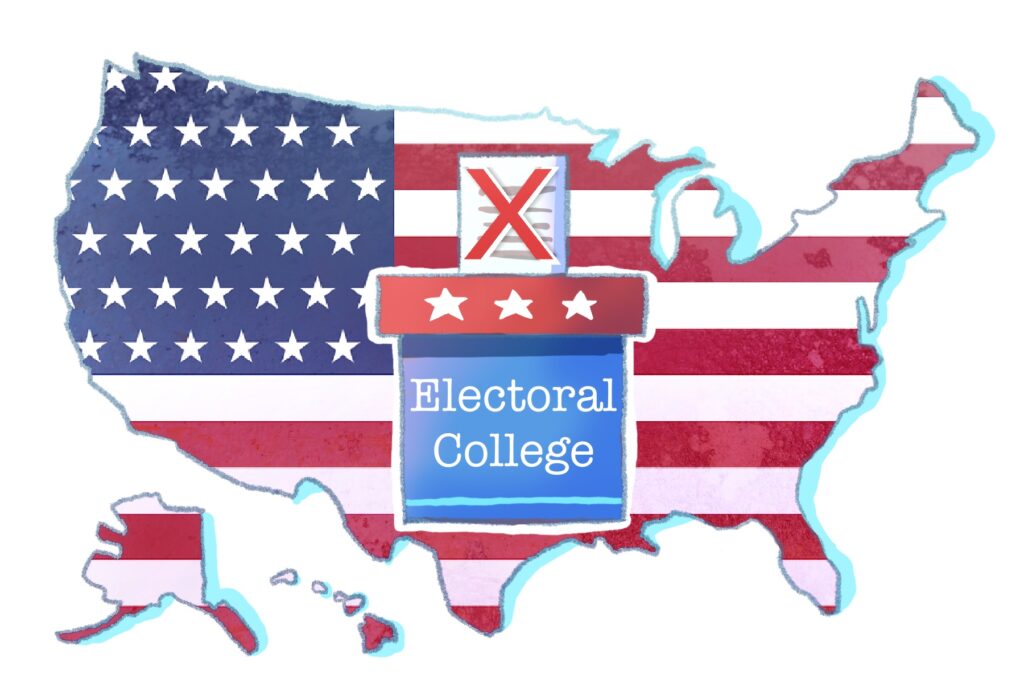The United States is the longest-running modern democracy, but as of late, our fundamental election system is under question. The Electoral College is as old as the country itself, but as the country has grown, the flaws in the system are starting to rear their ugly head. Originally, the Electoral College was created to balance the power of small and large states, but in effect, it gave power to an ever-shrinking number of “battleground states” that make or break presidential elections.
Currently, just 20 percent of Americans live in battleground or swing states. In 2020 President Trump would have needed just 43,000 votes spread across three states to win the election, even though President Biden would have earned 5 million more votes nationwide. As the US population has increased, the relationship between the Electoral College turnout and the popular vote turnout is getting ever farther apart.

In effect, the Electoral College makes certain votes mean more than others. It has also threatened the safe transfer of power and the equal power of the states. A close election can lead to recounts, audits, law suits, and riots. Candidates scrap over relatively small totals of swing state votes, even when national vote totals show huge differentials between the candidates.
In the 2016 presidential election, 94 percent of campaign visits took place in just 12 states. Campaigns don’t have a strong reason to spend time in states that are firmly blue or red, so states that usually deliver landslides for one party or another like California and Alabama don’t get the attention more contested states do. Still, those large states have more residents supporting the alternative party than many smaller states do. Small states also miss out on political campaigns because they can’t give many votes to candidates. The Electoral College is encouraging a divided country rather than unified conversation.
The obvious solution is to get rid of the Electoral College, but this requires a constitutional amendment with ⅔ of Congress and ¾ of state legislators signing on. An alternative is the National Popular Vote Interstate Compact. This is a loophole in which states pledge all of their electoral votes to whichever candidate wins the popular vote. The constitution outlines the rights of every state to decide how to allocate their votes, but this pledge only works if the majority of the country — 270 Electoral College votes — join the compact.
Currently, 205 votes’ worth of states have joined, and an additional 63 points worth of states have pending bills. It is vital for the future of American democracy that we get our states to join the compact. Assuming the pending bills pass, we will only need two more votes to artificially abolish the Electoral College. Protect your vote and help convince your state to join the National Popular Vote Interstate Compact.



